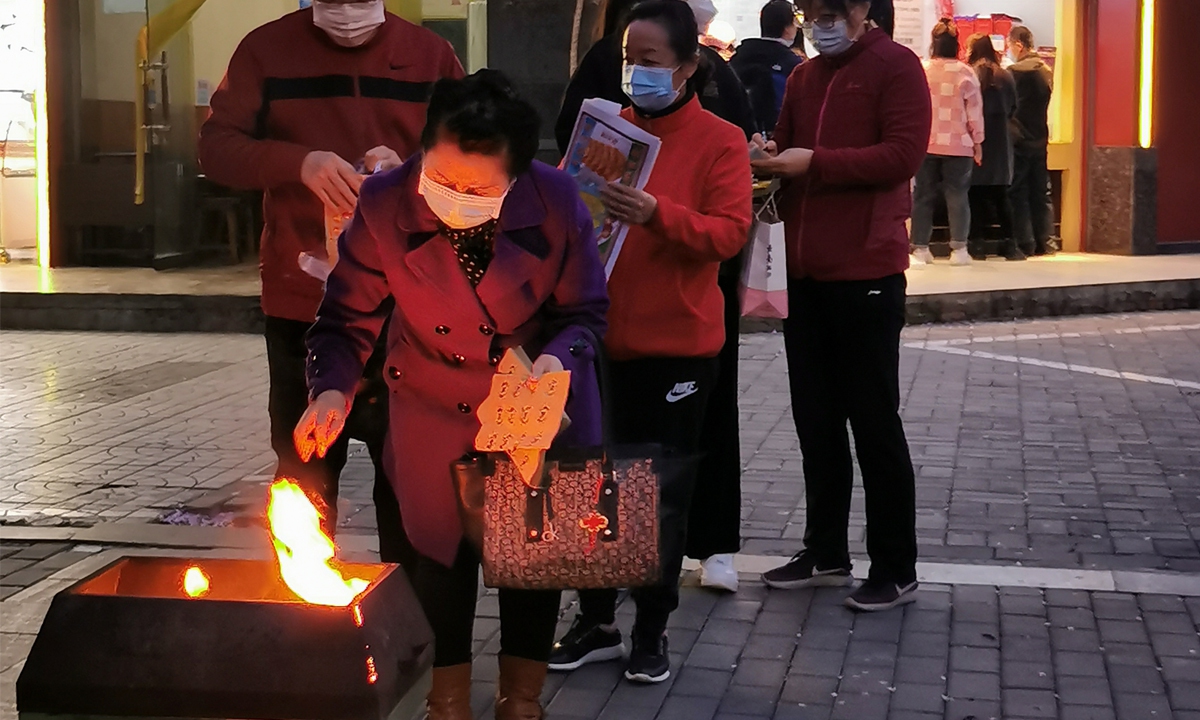Chinese cities strengthen management over joss paper burning ahead of Qingming festival, triggering discussion

Residents line up to burn joss paper at a designated site in Xi'an, Northwest China's Shaanxi Province Photo: VCG
As of press time, the hashtag "Harbin strictly investigates production and operation of burning joss paper" has gained over 47 million reads on Chinese-twitter like Sina Weibo. Some argue that burning joss paper is a way for people to remember their dead families.
Some expressed a different opinion, however. "My home was surrounded with smoke due to joss paper burning which choked me," one netizen wrote, "There are also other ways to remember deceased family members."
Qingming festival falls on April 4 this year. It is an occasion when people remember their dead families, especially in rural places, by burning joss paper, also known as ancestor money or ghost money.
Indeed, burning joss paper has caused many risks during the past years, even some forest fires. In 2017, a resident surnamed Xu in Southwest China's Sichuan Province was sentenced to one year's imprisonment and one year's probation for causing a forest fire while burning joss paper during a tomb sweeping ceremony.
In addition to Harbin, other cities including Beijing, Tianjin, South China's Hainan Province all called for a civilized ceremony to remember dead family members, following the Ministry of Civil Affairs' reminder for residents to spend a safe and civilized Qingming Festival to prevent COVID-19 epidemic.
In the first weekend since tomb sweeping services resumed, 20 major cemeteries in Beijing have received over 36,000 people, according to media reports.
Based on the national regulations on funeral management released by Chinese central government in 2005, whoever manufactures or sells feudal superstition-related products shall have their items confiscated by the authorities, and fined no less than one time but no more than three times the sales amount.


